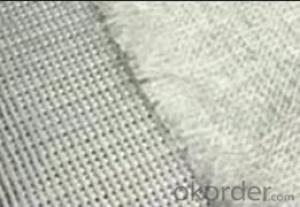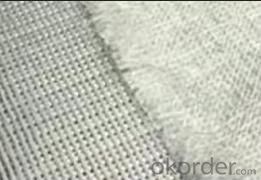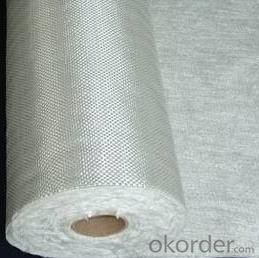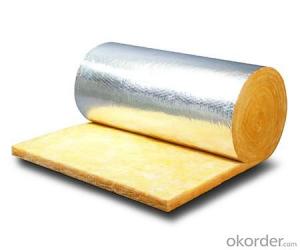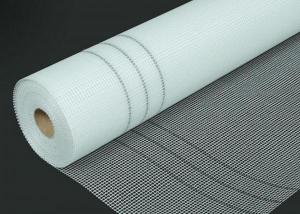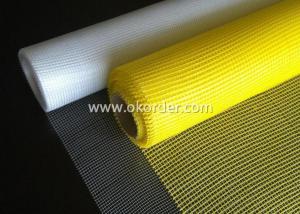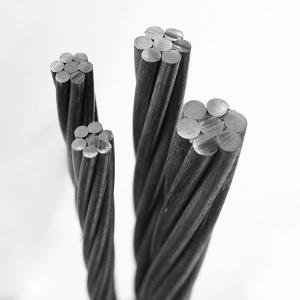Fiberglass Woven roving combo mat 1050gsm,1600mm
- Loading Port:
- Shanghai
- Payment Terms:
- TT OR LC
- Min Order Qty:
- 3000 m²
- Supply Capability:
- 30000 m²/month
OKorder Service Pledge
OKorder Financial Service
You Might Also Like
Process
Fiberglass stitch combo mat is the mat combining the woven roving and a even layer of chopped strand mat with polyester yarn.
Properties
• Fiber level unfolded without cross, high density, high utilizing rate.
• Multi-layer finished one time, decrease layer and enhance efficiency.
• Providing the product with multi-directional mechanical strength.
Applications
Mainly be used as reinforced materials in the composite material industry.
• Matrix: unsaturated polyester resin, vinyl ester resin, epoxy resin and phenolic resin etc.
• Craft: pultrusion, RTM, hand lay up, etc.
• Ultimate products: pultruded profiles, FRP body of boat, insulation board, automobile body.
Specifications
specifications | Fibre type | Wover roving | Chopped strand | Overall weight | Width |
(g/㎡) | (g/㎡) | (g/㎡) | (mm) | ||
EMK 600/300 | E-Glass | 600 | 300 | 900 | 1600/2400 |
EMK 600/380 | E-Glass | 600 | 380 | 980 | 1600/2400 |
EMK 600/450 | E-Glass | 600 | 450 | 1050 | 1600/2400 |
EMK 800/300 | E-Glass | 800 | 300 | 1100 | 1600/2400 |
EMK 800/380 | E-Glass | 800 | 380 | 1180 | 1600/2400 |
EMK 800/450 | E-Glass | 800 | 450 | 1250 | 1600/2400 |
Packaging: Wrapped in PVC and placed within a cardboard carton. | |||||
- Q:Can fiberglass mat tissue be used for electrical transformers?
- Fiberglass mat tissue can be used for electrical transformers. It is commonly used as insulation material in transformer manufacturing due to its excellent electrical insulation properties. Fiberglass mat tissue is made of fine glass fibers bonded together with a resin, creating a strong and durable material. It is able to withstand high temperatures and has a high dielectric strength, making it suitable for use in electrical transformers. Additionally, fiberglass mat tissue is lightweight and flexible, allowing for easy handling and installation in transformer components. It is also resistant to moisture, chemicals, and fire, further enhancing its suitability for transformer applications. Overall, fiberglass mat tissue is a reliable and efficient choice for insulation in electrical transformers.
- Q:Is fiberglass mat tissue suitable for insulation in chemical processing plants?
- Yes, fiberglass mat tissue is suitable for insulation in chemical processing plants. It is highly resistant to corrosion and chemicals, making it an ideal choice for such environments. Additionally, fiberglass mat tissue offers excellent thermal insulation properties, helping to maintain optimal temperature levels in the plant.
- Q:How does the roll length of fiberglass mat tissue affect its handling?
- The roll length of fiberglass mat tissue can have an impact on its handling in several ways. Firstly, a longer roll length means that the roll will be heavier and larger in size. This can make it more challenging to handle and maneuver, especially if the roll needs to be transported or lifted to different areas. It may require additional manpower or equipment to safely handle and move the roll. Secondly, the length of the roll can also affect how easily the fiberglass mat tissue can be unrolled and cut to size. Longer rolls may be more prone to tangling or becoming tangled, which can make it more difficult to unroll the tissue smoothly and evenly. This can result in wasted material or uneven application. Additionally, the length of the roll can also impact the storage and space requirements. Longer rolls may take up more space and require larger storage areas. This can be a consideration for manufacturers or distributors who need to store large quantities of fiberglass mat tissue. In summary, the roll length of fiberglass mat tissue can affect its handling by making it heavier and more difficult to maneuver, potentially leading to tangling or uneven unrolling, and requiring larger storage space.
- Q:Can fiberglass mat tissue be used for insulation in hot climates?
- Certainly! Fiberglass mat tissue is applicable for insulation purposes in hot climates. Fiberglass possesses remarkable thermal insulation characteristics that render it suitable for both cold and hot environments. In hot climates, fiberglass insulation effectively impedes the transmission of heat from the external to the internal areas of a structure, thereby ensuring a pleasant indoor temperature. It functions as a shield by minimizing the conduction, convection, and radiation of heat. Moreover, fiberglass insulation exhibits fire resistance, durability, and non-absorbency, thus establishing itself as an optimal option for insulation in hot climates.
- Q:Can fiberglass mat tissue be used for insulation in cleanrooms?
- Yes, fiberglass mat tissue can be used for insulation in cleanrooms. It is a commonly used material due to its excellent thermal insulation properties, low cost, and high resistance to chemicals and moisture. Additionally, fiberglass mat tissue has low particulate emission, making it suitable for cleanroom environments where maintaining a controlled and sterile atmosphere is crucial.
- Q:Can fiberglass mat tissue be used for aerospace applications?
- Yes, fiberglass mat tissue can be used for aerospace applications. Fiberglass mat tissue is a lightweight and strong material that is commonly used in the aerospace industry for various purposes. It is often used as a reinforcement material in composite structures, such as aircraft wings, fuselages, and other components. The high strength-to-weight ratio of fiberglass mat tissue makes it an ideal choice for aerospace applications, as it helps to reduce the overall weight of the aircraft while maintaining structural integrity. Additionally, fiberglass mat tissue is resistant to corrosion and can withstand extreme temperatures, which are important factors in aerospace environments. Overall, fiberglass mat tissue is a versatile material that meets the stringent requirements of aerospace applications and is widely used in the industry.
- Q:How does fiberglass mat tissue perform in high temperatures?
- Due to its inherent heat resistance properties, fiberglass mat tissue is highly effective in high temperatures. The mat is crafted from woven glass fibers, creating a durable and sturdy material. These glass fibers possess a high melting point, enabling the fiberglass mat tissue to endure elevated temperatures without distorting or compromising its structural integrity. Unlike other materials, fiberglass mat tissue does not shrink, warp, or become brittle when exposed to high temperatures. It maintains its dimensional stability and mechanical strength, making it suitable for a wide range of applications in industries such as automotive, aerospace, construction, and insulation. Furthermore, fiberglass mat tissue acts as a thermal insulator, providing protection against heat transfer. It effectively resists heat conduction and radiation, assisting in maintaining the desired temperature in a given environment or preventing heat damage to nearby components. Moreover, fiberglass mat tissue is non-combustible, meaning it does not burn or release toxic gases when subjected to fire. This characteristic makes it a dependable choice for applications that necessitate fire resistance, such as fireproofing insulation or protective barriers. In conclusion, fiberglass mat tissue excels in high temperatures. Its heat resistance, dimensional stability, mechanical strength, thermal insulation properties, and non-combustible nature establish it as an outstanding material for demanding environments where elevated temperatures are present.
- Q:Can fiberglass mat tissue be used for repairing fiberglass tanks?
- Yes, fiberglass mat tissue can be used for repairing fiberglass tanks. Fiberglass mat tissue is a thin, flexible material that is commonly used in the construction and repair of fiberglass products. It is designed to provide reinforcement and strength to the repaired areas. When applied with an appropriate resin, fiberglass mat tissue can effectively repair cracks, holes, or damaged sections of fiberglass tanks. However, it is important to ensure that the repair is done in a proper and professional manner, following the manufacturer's instructions and guidelines. Additionally, it is recommended to consult with an expert or specialist in fiberglass repair to ensure the best possible outcome for the repair.
- Q:Can fiberglass mat tissue be used for electrical enclosures?
- Typically, fiberglass mat tissue is not employed in the construction of electrical enclosures. These enclosures are specifically designed to shield electrical equipment against external elements including dust, moisture, and physical harm. Usually, materials with excellent insulation and high mechanical strength, such as sheet metal, plastic, or fiberglass reinforced plastic (FRP), are used for their manufacture. Although fiberglass mat tissue can offer certain levels of mechanical strength and insulation, it is not commonly utilized as the main material for electrical enclosures due to its restricted durability and lower resistance to moisture and impact.
- Q:What is the maximum temperature that fiberglass mat tissue can withstand?
- The specific type of fiberglass material being utilized determines the maximum temperature that fiberglass mat tissue can endure. Typically, fiberglass mat tissues are engineered to withstand temperatures of up to 600 degrees Fahrenheit (315 degrees Celsius). Nevertheless, it should be emphasized that the temperature resistance may fluctuate due to various factors, including material thickness, manufacturing techniques, and the intended usage. For precise information regarding the maximum temperature tolerance of a specific fiberglass mat tissue, it is advised to refer to the manufacturer's specifications or technical data sheets.
1. Manufacturer Overview |
|
|---|---|
| Location | |
| Year Established | |
| Annual Output Value | |
| Main Markets | |
| Company Certifications | |
2. Manufacturer Certificates |
|
|---|---|
| a) Certification Name | |
| Range | |
| Reference | |
| Validity Period | |
3. Manufacturer Capability |
|
|---|---|
| a)Trade Capacity | |
| Nearest Port | |
| Export Percentage | |
| No.of Employees in Trade Department | |
| Language Spoken: | |
| b)Factory Information | |
| Factory Size: | |
| No. of Production Lines | |
| Contract Manufacturing | |
| Product Price Range | |
Send your message to us
Fiberglass Woven roving combo mat 1050gsm,1600mm
- Loading Port:
- Shanghai
- Payment Terms:
- TT OR LC
- Min Order Qty:
- 3000 m²
- Supply Capability:
- 30000 m²/month
OKorder Service Pledge
OKorder Financial Service
Similar products
New products
Hot products
Hot Searches
Related keywords
